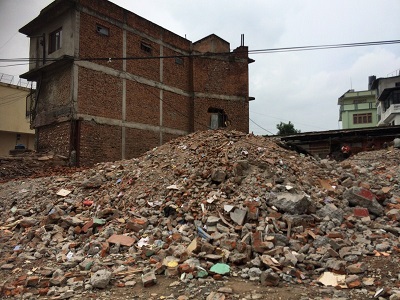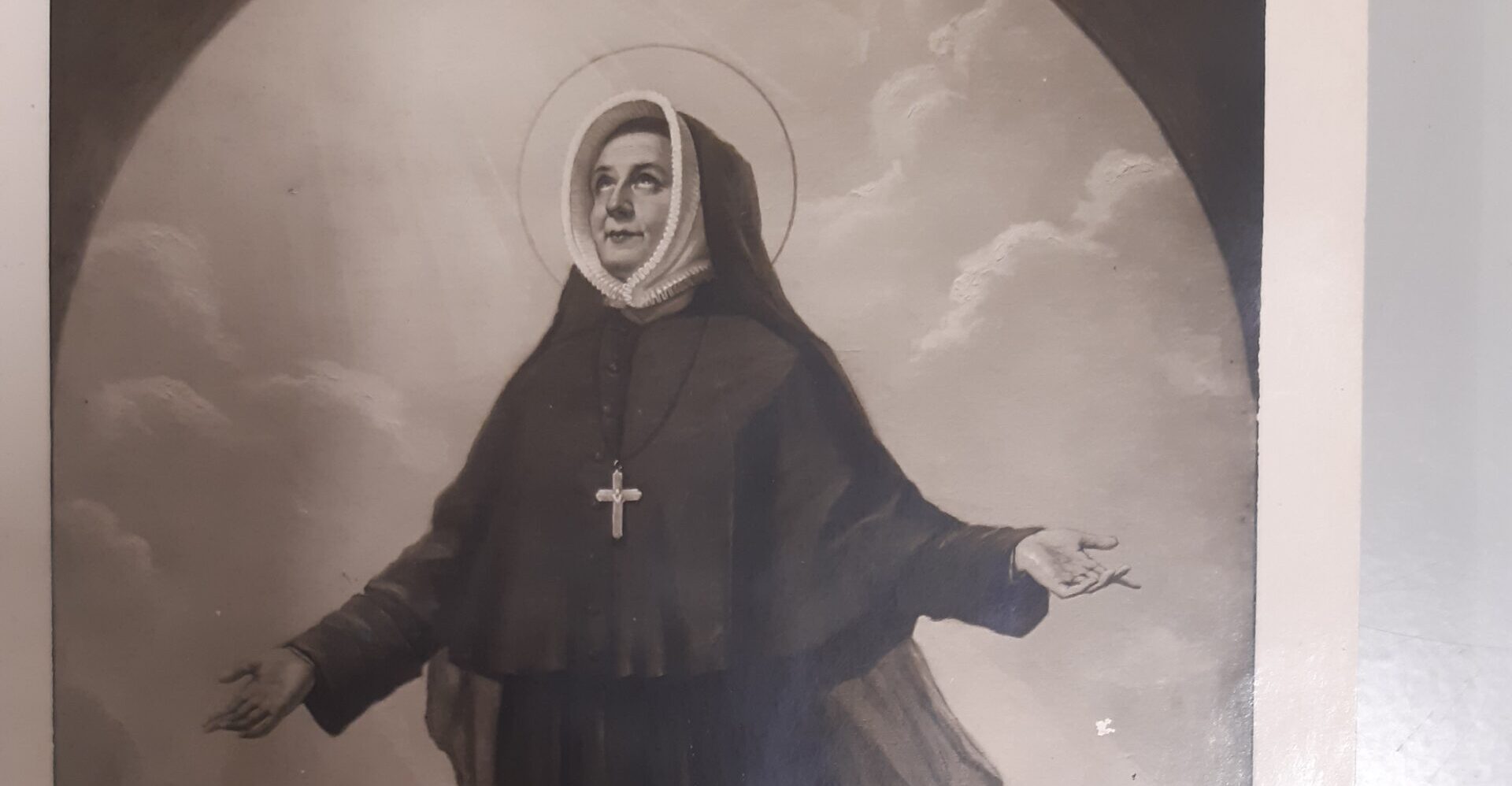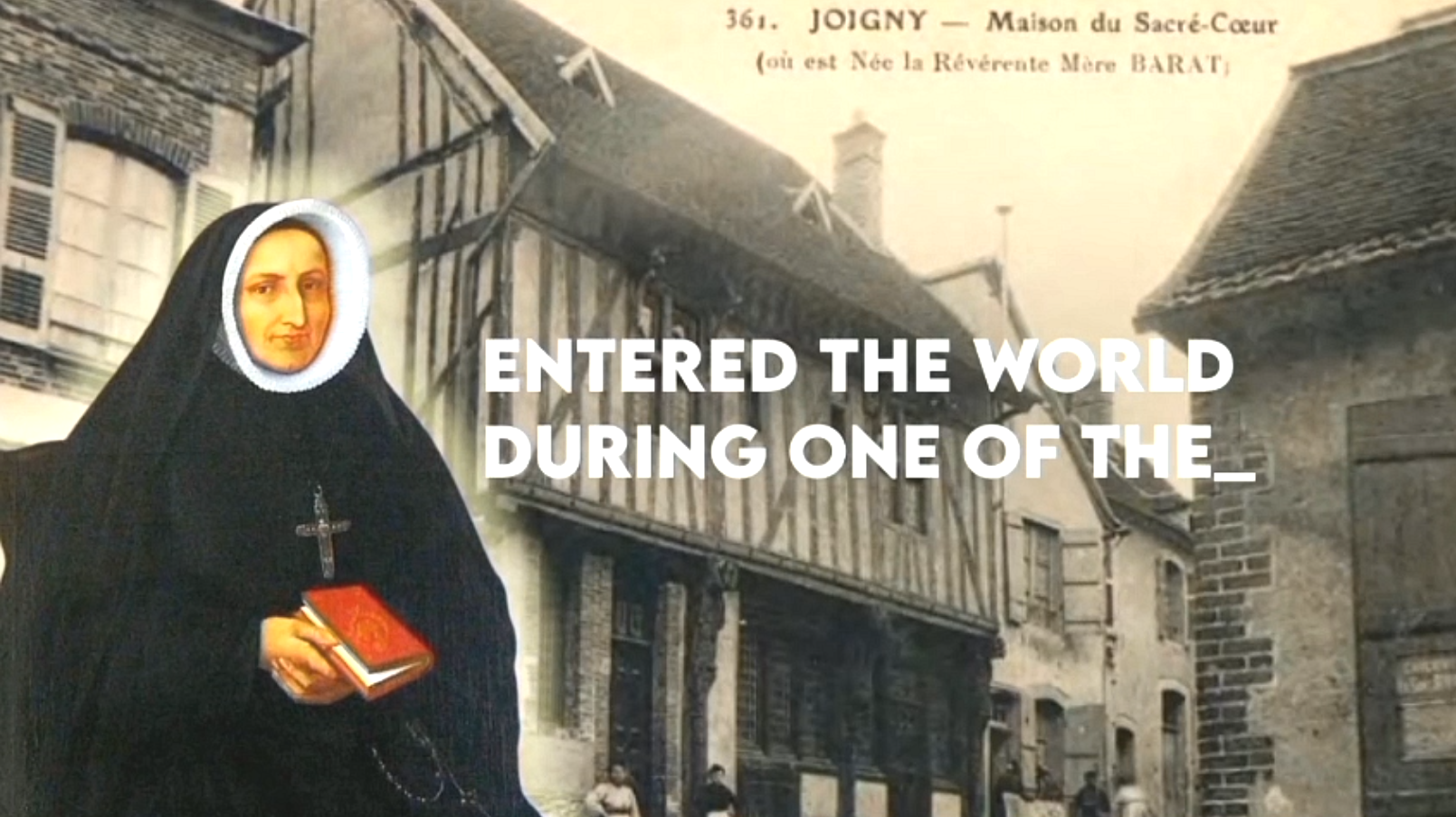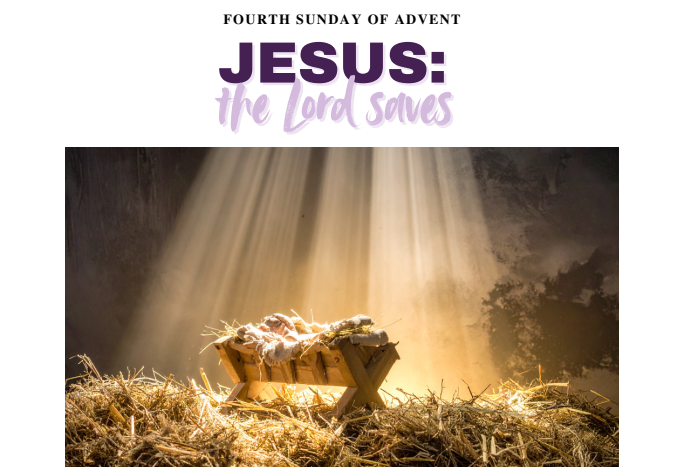Asia is an area prone to natural disasters. A recent publication on Climate Change in Asia shows that the region will continue to be vulnerable to earthquakes and drought, typhoons, tsunami, and floods.
Disasters call for a response which may take different forms: emergency or relief operations, reconstruction or rehabilitation, mitigation or prevention, and disaster preparedness. (Here is a helpful guide to understand these different “disaster definitions.”)
Being in Asia, we are confronted by this reality more frequently now. In small and limited ways, we try to respond.
Less than a year ago, for example, on the 25th of April 2015, a 7.8 magnitude earthquake hit at the heart of Kathmandu, Nepal, killing over 9,000 persons, injuring over 23,000, and reducing to rubble homes, infrastructure and irreplaceable cultural monuments.
From the Province of India, Sister Sophia Nelliekunnel rscj, a medical social worker belonging to the Patna community, which is the one nearest Kathmandu, participated in immediate relief operations.
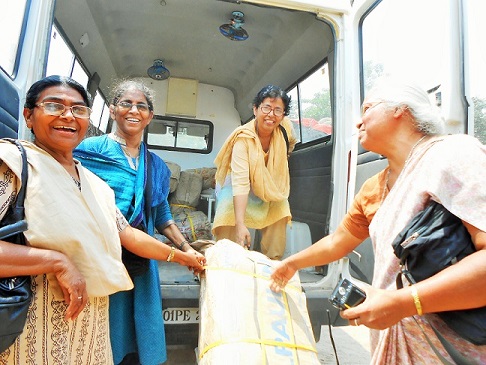
Below are excerpts from Sophia's account:
On 4th May, I bought 200 pieces of tent material (tarpaulin sheets). On 5th May, by 4 AM, our team of three – Sister Shaila SND, Mr. Francis the ambulance driver and I – left in our hospital ambulance for the Nepal border. Our aim was to assess the situation there and to deliver the goods to the CST fathers of Kathmandu. They were coming to Rexaul to collect the materials, because we could not get permission to cross the border and could not take the medical team either. We reached the Rexaul border custom office by 12 noon. The road from Motihari to Rexaul was pathetic and broken, filled with dust and stones! It took three hours to travel just 56 kilometres. There was a traffic jam, too. The vehicle sent by the Fathers and some Notre Dame Sisters who came to help us had been waiting for more than one hour in the midday heat. The unbearable May heat was horribly wearisome and made our work extremely difficult. To make the story short, we delivered the goods and then stayed that evening with the Notre Dame Sisters who have a convent, a dispensary and a school nearby. On 6th May, we left their place by 4 AM, and reached Patna safely by afternoon…..
It was a valuable experience for me…. At the end of this Nepal journey I said to myself: “I cannot control the length of my life, but I can control and contribute to its breadth, depth and height.” During this year of consecrated life [and now the Year of Mercy], may we be sensitive to the whisper of the hopeless, the plea of the forgotten and the cry of the anguished.
From the District of the Philippines, Sisters Lydia Collado rscj and Sandra Clemente rscj went to Kathmandu in September 2015 to facilitate a Psychological First Aid trainors’ training upon the request of the Asian Resource Foundation (ARF) in Nepal. Even though the training was held five months after the disaster, it was very relevant for the 30 handpicked participants who came from different NGOs, national service agencies, or community-based networks.
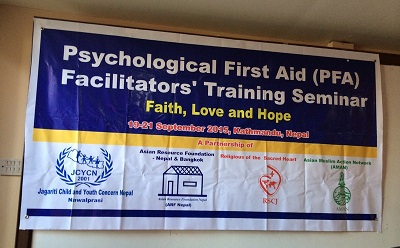

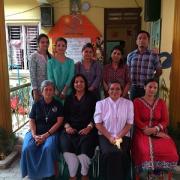
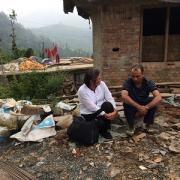
Like Nepal, the Philippines has had its share of disasters that took lives and caused destruction. It was this shared experience that encouraged me to accept the invitation to go there. I began the workshop with these words: “We are also a wounded people…. so we can be united and find life in our wounds. We come from different faith traditions (Hinduism, Buddhism, Islam, Christianity), but our pain and suffering may be the language that we can use to better understand one another. We will go through a psychological process, but in the end, we will seek for an integrated healing that can only come from God, whatever name we may call our God. We hope that this training would be a venue for us to share our common humanity, and to understand, learn, and care for one another in love and compassion.”
After the training, the participants said that they were able to process, unleash, and understand their own trauma, and now feel more ready to begin a deeper and clearer path towards healing. While they expressed their gratitude to us, Sandra and I felt more blessed and grateful, especially for the privilege of being allowed to share in their woundedness. It was for us and experience of entering into the Heart of Jesus, where all our brokenness find meaning and healing. Indeed, from His wound flowed out life and love….
Province |India|Philippines
JPIC |A Focus for Transforming Relationships: Care for the Earth, Our Common Home
